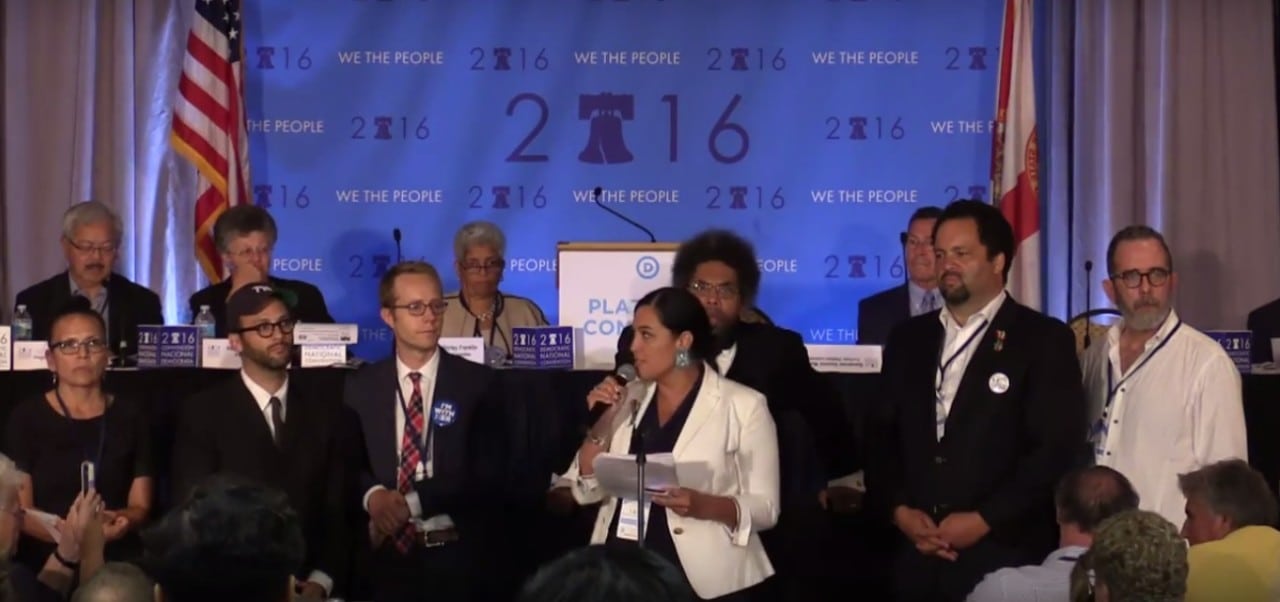
Avoiding what could have been a major point of contention in the Democratic Party platform drafting process, representatives appointed by the Sen. Bernie Sanders (I-Vt.) and the Hillary Clinton campaigns Saturday agreed on a “unity amendment” on climate change. “It was going to get very intense tonight without the coming together, so I’m appreciative of all of us working together,” Sanders appointee Deborah Parker said during the final hours of the Democratic National Party’s two-day final platform meeting in Orlando, Fla.
The amendment addresses many areas of disagreement that have carried through the drafting process, including carbon taxing, which the Sanders camp supported.
The amended platform states that Democrats “believe that carbon dioxide, methane, and other greenhouses should be priced to reflect their negative externalities.” The amendment also says action on climate change should be swift, as there is no time to “wait for climate deniers and defeatists in Congress to start listening to science.”
The group also agreed to incentivize the development of wind, solar, and other renewable energies over the development of natural gas plants, and to “ensure federal actions don’t significantly exacerbate global warming.”
This election’s Democratic platform is unique as the platform committee was not selected solely by the party’s nominee because at the time the 15 committee members were appointed in May there was no clear nominee. Therefore, instead of the platform essentially being built on the campaign promises of Hillary Clinton, who has since emerged as the Democratic nominee, committee members appointed by Sen. Bernie Sanders (I-Vt.), who ran a more liberal campaign, had some say in the final document.
Sanders named five of the drafting committee members, Clinton named six, and the remainder were appointed by Rep. Debbie Wasserman Schultz (Fla.), chair of the Democratic National Committee.
At the last meeting, held in St. Louis, Mo., on June 24-25, Sanders appointee Bill McKibben offered several amendments including supporting a carbon tax, a ban on fracking, the end of fossil fuel leasing on federal lands, and mandating that federal agencies consider the potential climate effect of their actions. Each amendment was voted down 7-6 with all of the Clinton appointees voting in opposition.
The two camps were not able to agree on fracking in Orlando, and an amendment stating that Democrats believe the practice should be banned failed. Instead, the panel approved an amendment stating “[w]e believe hydraulic fracturing should not take place where states and local communities oppose it.”
The Sanders campaign praised the deal. “I am extremely proud of what we have accomplished tonight. This is the most aggressive plan to combat climate change in the history of the Democratic Party. … But we are not finished. We have got to follow through on the promise of this agreement, to put people before the profits of polluters and solve the global crisis of climate change before it’s too late,” Warren Gunnels, Sanders’ policy director, said in a press release.